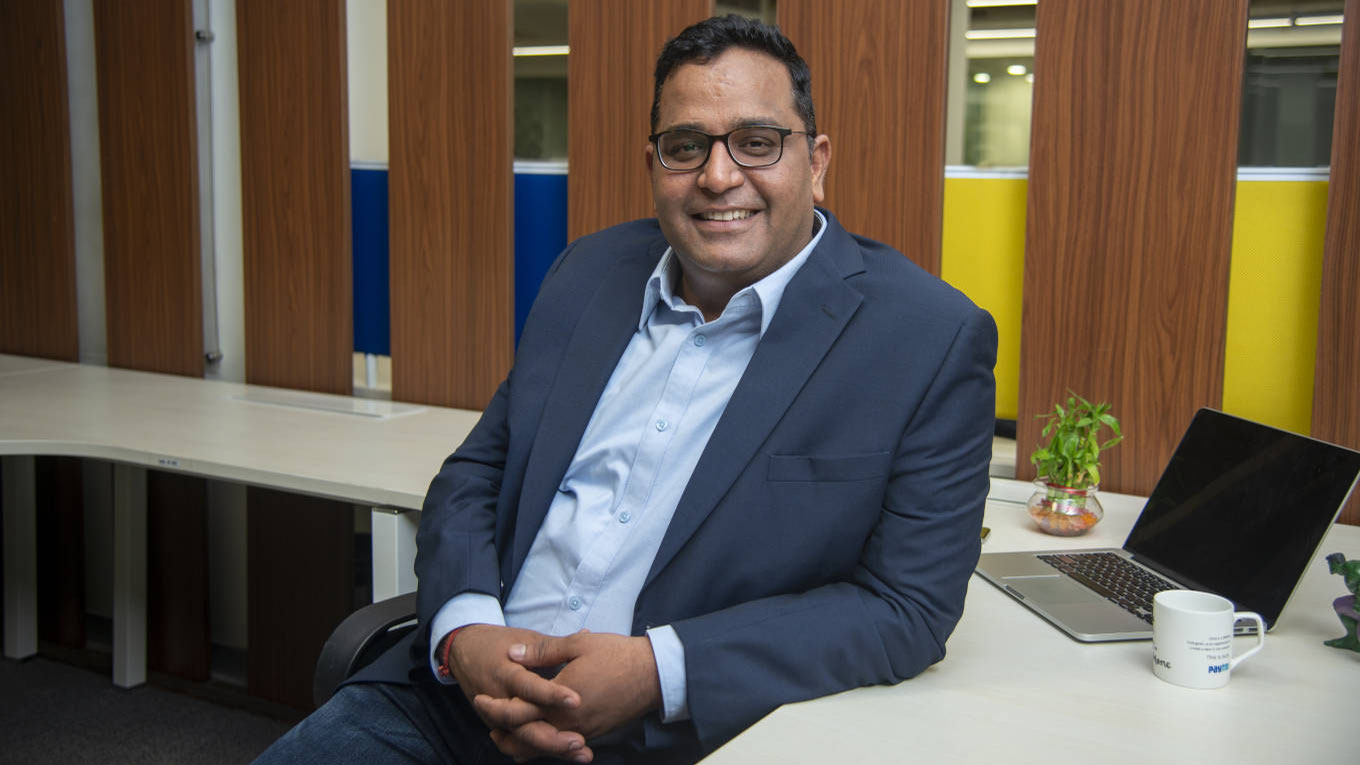-
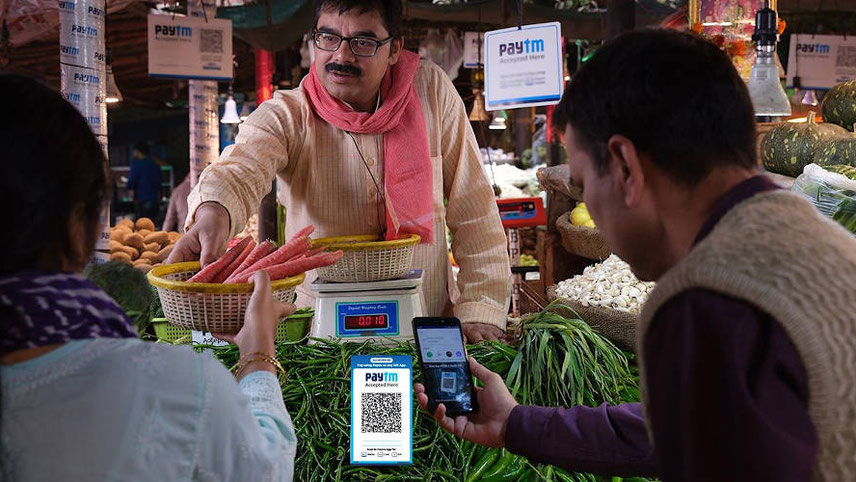
Paytm's All-in-One QR gives merchants the power to seamlessly accept payments
The company has been able to leverage its core payments platform to build an ecosystem with innovative offerings in commerce and cloud, and financial services. Paytm is available across the country with Paytm karo (use Paytm) evolving into a verb for hundreds of millions of Indian consumers, shopkeepers, merchants and small businesses.
Paytm has created a payments-led super-app, offering a large bouquet of innovative and intuitive digital products and services such as Paytm Payment Instruments, which allow customers to use digital wallets, sub-wallets, bank accounts, buy-now-pay-later and wealth management accounts and major third-party instruments, such as debit and credit cards and net banking.
Paytm helps merchants grow their business by giving them solutions that allow them to accept payments, acquire and retain consumers, improve their business operations and access financial services. Merchants can use in-store and online payment solutions to accept payments through Paytm Payment Instruments as well as major third-party payment methods.
To help them acquire and retain customers, and create demand, Paytm offers merchants services like selling tickets to customers, advertising, mini-app listings, channel and loyalty solutions. It also provides software and cloud services that allow large, medium and small merchants to improve their business operations and access important financial tools such as banking, wealth and credit facilities.
Paytm celebrates the ambitious six-year journey of the Digital India mission by committing Rs50 crore to promote digital payments and reward top merchants for their contribution. Under the offer, Paytm has announced a cashback programme for merchants and consumers in India, for every transaction made through the Paytm app.
Merchants with the greatest number of transactions made through Paytm app before Diwali, will be rewarded with certificates for being the top merchants and will also receive rewards such as free Soundbox, IoT devices and so on. Customers, who scan the Paytm QR code at stores to pay through the Paytm app, will also receive cashback on each transaction.
Driving digital transformation
Paytm founder and CEO Vijay Shekhar Sharma says: “India has made significant strides in its Digital India mission, which empowers all with technological advancements. This mission is bound to contribute to the country’s growing economy. We are honoured to be the driver of digital transformation by redefining digital payments in our country. Paytm’s Guaranteed Cashback offer is to recognise the top merchants, who are at the heart of India’s growth and have made Digital India a success.”
By leveraging its digital reach, democratising credit is a significant opportunity for Paytm to service the underserved and unserved. Paytm has the largest payments merchant and consumer base in India which lets the brand leverage the power of both the consumer and merchant side on the payment network which will easily be a major driver of its digital lending products.
For example, the company launched Paytm Postpaid, a buy-now – pay-later product and merchant cash advance, through its financial institution partners. The FI partners have disbursed 1.4 million loans in the fourth quarter of FY21. In collaboration with insurance partners, Paytm offers attachment products such as movie and travel ticket cancellation protections based on user engagement on the platform and as a part of the payments flow, and the subsidiary, Paytm Insurance Broking Private Limited, a registered insurance broker with IRDAI, offers an insurance marketplace with products across auto, life and health insurance.
-
Paytm is available across the country with Paytm karo (use Paytm) evolving into a verb for hundreds of millions of Indian consumers, shopkeepers, merchants and small businesses
Paytm Money App offers wealth management services. Paytm Payments Bank launched fixed deposits on the Paytm app (a product for which Paytm Payments Bank partners with commercial banks). Paytm Gold allows consumers to purchase 24-karat pure gold, with quality assurance, in collaboration with a partner. Paytm Money offers mutual funds, equity and futures and options (derivatives) trading through a registered investment advisor (RIA) licence and an equity broking licence from SEBI.
India is a country of hundreds of millions of young and aspiring consumers who are underserved in payments and financial services products. There are millions of small businesses that would benefit from having increased access to affordable software, technology and financial services.
Despite the impact due to the Covid-19 pandemic on global economies, India continues to be the fastest growing major economy globally and is expected to grow at a CAGR of 9 per cent over the next five years to become a $4.2 trillion economy by 2025 with the key growth engines being consumption, favourable demographics with a large working population, and growing urbanisation.
India’s digital ecosystem is at an inflection point, thanks to increasing smartphone penetration and internet usage, and the proliferation of digital products and services for consumers. The country’s active internet users are expected to increase from 400-450 million in FY21 to approximately 900 million in FY26 and the number of smartphone users is expected to increase from 500-550 million in FY21 to 800-850 million in FY25. It is expected that these users will want to transact online for bill payments, shopping, entertainment and other needs.
Technology adoption across consumer internet sectors has been accelerating and has gained even more prominence in the post Covid-19 pandemic world. Overall digital commerce (including e-commerce, e-recharges and bill payments) in India is expected to grow over 3.3 times in the next five years to more than $300 billion in FY26 from approximately $90 billion in FY21.
Paytm has emerged as the largest payments platform in India with a gross merchant value (GMV) of Rs4,033 billion in FY21 and the platform enjoys an overall payments transaction volume market share of approximately 40 per cent, and a wallet payments transaction market share of 65-70 per cent in India as of FY21.
Given the comprehensive nature of the payments platform, Paytm has a better ability to monetise the payments business because it is not dependent on one or a few payment methods where the monetisation potential is low or zero. Some payment instruments like credit cards and payment methods like in-store devices have a much higher monetisation potential than the more widely used payment forms.
India’s payment landscape has transformed over the last decade, driven by the emergence of mobile payments, the government’s vision to transform India into a cashless society, the creation of innovative and robust payment infrastructure, high consumer and merchant acceptance and regulatory support.
Due to the growth of digital commerce and services, combined with the increasing user habit of transacting using mobile phones for in-store payments and for money transfer, digital payment is gaining scale and is growing rapidly. As a result, unique online transacting users, transacting for services such as online banking, mobile top-ups, in-store payments etc, are expected to grow from 250-300 million in FY21 to 700-750 million by FY26.
-
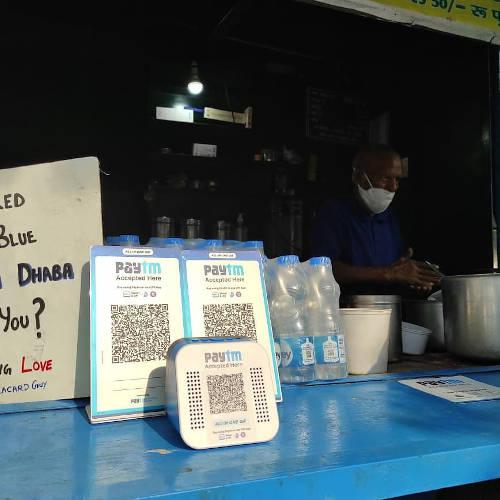
Paytm Soundbox, an IoT enabled payment acceptance device
Rising digitisation
The Indian financial services market continues to be significantly underpenetrated. For example, for FY19, household debt as a percentage of gross domestic product in India is only 11 per cent versus 75 per cent and 55 per cent in the United States and China, respectively; credit card per capita in India is approximately 0.04 compared to 3.28 in US and 0.53 in China; 3 per cent of the Indian population invests in stock market versus 55 per cent and 13 per cent in the United States and China, respectively; insurance premium as a percentage of GDP is at 3.8 per cent compared to the global average of 7.2 per cent.
Across all these traditional financial services products, India has growth opportunities aided by technology and rising digitisation to increase access and reach. By FY26, retail lending is expected to be a $1 trillion market, MSME lending is expected to be a $600 billion market and insurance is expected to be a $228 billion market.
Regulators like the Reserve Bank of India, Securities and Exchange Board of India (SEBI) and the Insurance Regulatory and Development Authority of India (IRDAI) have acted as enablers of Digital India through continual reforms and encouraging innovation in the marketplace. The introduction of a unique ID (AADHAR) and linking it with the Indian Income Tax ID (PAN) has made Video-KYC feasible and has digitised on-boarding. Additionally, RBI’s introduction of payments bank licensing regime, wallet licensing regime, AADHAR universal identity and the creation of UPI has contributed to digitisation of payments.
Paytm has driven innovation in the Indian payments landscape, designing and building products for Indian consumers and merchants, and creating new market segments. It launched Paytm Wallet in 2014, which saw widespread acceptance amongst Indians, many of whom were making digital and mobile payments for the first time. QR was launched in 2015, and was upgraded to All-in-One QR in January 2020 – the only source C from Paytm Payment Instruments, third party and all UPI instruments directly into their bank account. In 2020, the company launched Paytm Soundbox, an IoT enabled payment acceptance device, providing real time audio confirmation for payment completion.
Paytm has added a plethora of businesses – Paytm Payments Bank, Paytm Payments Gateway, Paytm Payout, Paytm Money, Paytm Insider, Paytm Insurance, Paytm Postpaid, Paytm for Business, Paytm Credit Cards, Paytm First Games along with utility bill payments, offline merchant payments, rental payments, content and so on.
Paytm’s commerce and cloud services offerings provide lifestyle commerce services such as ticketing, travel, entertainment, gaming, food delivery, ride hailing and more. Easy access to such services within the Paytm App environment, through its native offerings or mini-apps partners, plays a critical role in user engagement and retention, and enhances the brand, the company says.
“The Covid-19 pandemic has led to an accelerated shift towards a more contactless and digital economy which is leading to a shift from physical to digital transactions,” says Jyoti Roy, Deputy Vice President, Angel Broking Ltd.
-
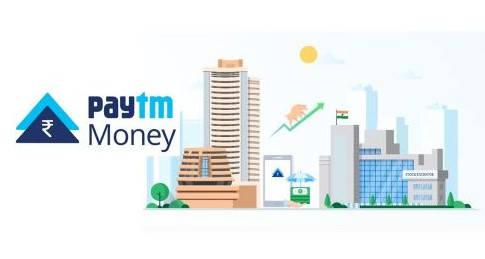
Given the wide suite offerings to both consumers and merchants, Paytm has almost become synonymous with digital payments and is the market leader in consumer to merchant payments through mobile, with a 40 per cent market share. “With Paytm’s brand recall and ability to drive higher consumer engagement through Paytm Payment instruments we believe that it will be the biggest beneficiary of the manifold increase in consumer to merchant payments through mobile,” says Jyoti.
Since most of Paytm’s financial services businesses were launched recently between 2019 and 2021, they contributed a relatively small percentage of Paytm’s revenue. Some of the Paytm payment instruments are offered with Paytm Payments Bank, which has over 64 million savings accounts.
For the quarter ended 31 March, 2021, Paytm Payments Bank was the largest UPI beneficiary bank with a market share of 17.1 per cent. According to RedSeer, in April 2021, Paytm Payments Bank had the lowest technical decline rate of 0.01 per cent as a remitter bank while other banks had a weighted average of 1.06 per cent. However, as a beneficiary bank, Paytm Payments Bank had the lowest technical decline rate of 0.01 per cent while other banks had a weighted average of 0.35 per cent.
Paytm operates a technology platform with capabilities across the entire loan cycle including origination, developing credit risk models, loan management and collection to provide a seamless credit access to consumers and merchants through their financial institution partners. It works with financial institution partners in improving their distribution, underwriting and collections, and aims to drive the increase of credit in India.
“Fintechs that have attained a significant mass or market share in a particular region or niche segment have caught investor eyeballs in spite of rich valuations. Paytm, the Alibaba-backed digitally powered financial entity, has also positioned itself well with over 6 crore bank accounts and 30 crore wallets already in the kitty,” says Kajal Gandhi, Vice President, Research, ICICI Securities Ltd.
Meanwhile, the Paytm Wealth Community platform that has been designed for the needs of the new Indian investor offers 30-to-60-minute video sessions in English, Hindi, and Hinglish, with plans to offer sessions in languages like Gujarati and Tamil in the near future.
The Paytm Wealth Community also enables subject matter experts and experienced investors in the capital markets to become content creators and share their knowledge with millions of budding investors. Creators on the platform include the likes of Mayuresh Joshi (head of research at William O’Neil India), Vishal Malkan (founder of Malkansview), Ajit Mahuli (founder of learnpriceactiontrading.com), and Swapnil Pawar (founder & CEO of Asqi Advisors).
Vishal Mehta, founder of MarketScanner.in and a popular creator on the platform says: “The new generation of traders today like to learn via visual media, on mobile, and in a language they are comfortable with. Paytm Wealth community gives the users exactly what they want. The sessions on the platform are short, crisp, offered during both market and non-market hours, and delivered by the who's who of the industry. The usefulness of this to the end-user is undeniable.”
-
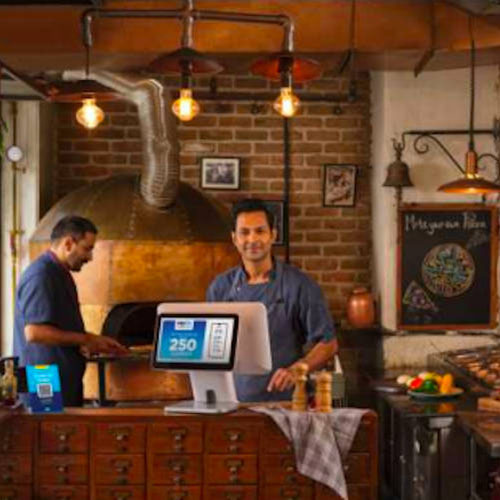
Paytm is the market leader in consumer to merchant payments through mobile, with a 40 per cent market share
“Millennials love to chat and interact with other investors, and learn much more from such peer-to-peer discussions vs the more traditional learning approaches,” says Varun Sridhar, CEO of Paytm Money. “Paytm Wealth Community was designed to make these interactions seamless, and the traction we have received has been overwhelming. The platform has a very exciting product and technology roadmap and is 100 per cent free for all users,” adds Sridhar.
Paytm Money
As part of its financial investment knowledge service, Paytm Money has recorded over a million learning minutes across 100-plus sessions for its video-based Paytm Wealth Community. The video-based platform aims to revolutionise how Indians learn, discuss, and trade in the capital markets from top industry experts.
The platform enables users to attend live sessions conducted by subject matter experts across an array of wealth topics like Stocks, F&O, IPO, ETFs, mutual funds, gold, fixed income, and personal finance. Users can learn from experts, interact with them to clarify doubts, and also chat with other users on the platform to discuss various wealth-related topics. The platform now offers free access to all recorded expert sessions to users to help them understand or refer back to various wealth subjects.
Paytm Money offered Devyani International, Exxaro Tiles, Windlas Biotech, and Krsnaa Diagnostics an IPO on its platform from 4 to 6 August, and these public issues have received a strong response from the investing community. Paytm Money has identified some noteworthy trends such as interest from first time investors for IPOs has been rising consistently, and the average ticket size for an investor aged 30+ was 30 per cent higher than an investor below 30 years of age. More than 45 per cent of pre-existing IPO investors on the Paytm Money platform participated in one or more IPO recently.
The states driving the Paytm application are Gujarat, NCR, Maharashtra, UP, and Rajasthan, and the leading cities include Ahmedabad, Jaipur, Delhi, Surat, and Hyderabad; participation from smaller cities and towns has also been rising, with customers from 500-plus different locations participating in the four IPOs offered on Paytm Money recently. Women participation in IPOs has seen a consistent rising trend over the last month, with 15 per cent women applicants in these IPOs on Paytm Money; this is 40 per cent+ higher than what has been seen historically for IPO applications on the Paytm Money application.
Sridhar says: “The IPO fervour continues with young, millennial investors taking the lead on applications on Paytm Money. With its mission to drive wealth management for Indians, the company hopes to continue to make the lives of investors easier and bring more convenience for them.”
IPO mode
Recently, Paytm Money also announced the launch of an innovative feature which allows users to apply for IPOs before the actual IPO opening in the markets. Paytm Money is the first digital broker in India to offer this functionality. The ‘Pre-IPO Open application’ feature was specifically designed to make the lives of users better; the order is recorded on Paytm Money’s system, and sent to the exchange for processing whenever the IPO opens.
-
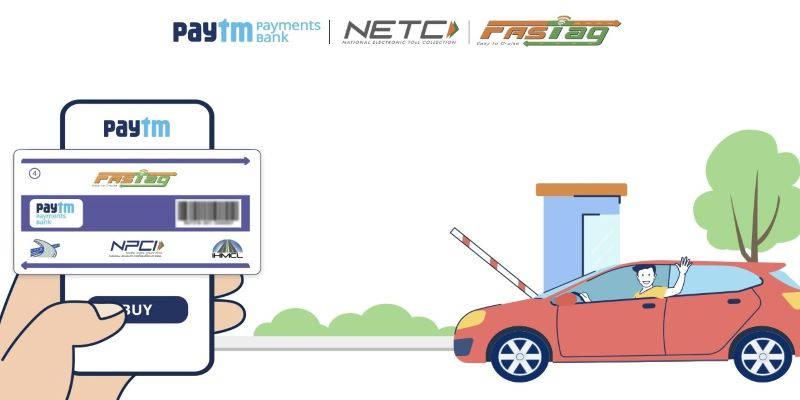
PPBL has equipped over 40 lakh commercial and private vehicles with FASTags
Now, Brand Paytm itself is in IPO mode. One97 Communications, the parent company of Paytm, has filed its DRHP with the regulator for an aggregate offer size of Rs16,600 crore via an Initial Public Offering, market sources say. The issue comprises a fresh issue of equity shares of face value of Rs1 each aggregating to Rs8,300 crore and offer for sale by the existing shareholders, aggregating to Rs8,300 crore.
The company has the option, in discussion with BRLMs, to undertake a pre-IPO placement of Rs2,000 crore, subject to relevant approvals. If the pre-IPO placement is completed, the Fresh Issue size will be reduced to that extent. “The IPO has already generated plenty of interest among investors. Shares of Paytm are being traded between Rs2,850 and Rs3,000 and smaller investors are going gung-ho about this stock,” says Aditya Aggarwal, Director, Growfast Securities & Credit.
Post the Zomato listing, says Aggarwal, “the new generation companies are in big demand and seeing the investor participation in fresh issues, retailers, investors and HNIs are rushing to buy pre-IPO stocks because they don’t get the stock on fresh application and listing gains leave nothing for the investors to earn.” Pre-IPO trades have become a win-win situation for all the participants. ESOP, or existing shareholders get an immediate exit option and are able to encash without waiting for the IPO and lock-in period to expire and investors get ready stock on an immediate payment basis, he points out.
Abhishek Ginodia, Director, Altius Investech, opines: “Paytm has been the poster boy for India’s fintech space. We have had immense demand for shares of Paytm among investors for the last couple of years. The asking rates have gone up by 20-25 per cent after Zomato’s stellar listing. With one of the highest market shares in merchant offline payments, we expect Paytm to have significant moat going forward as well. At an expected $25-30 billion valuation, its IPO will be a true testament to the successful exits in India’s start-up landscape and would pave the way for the next 100 unicorns eyeing public listing.” Morgan Stanley India Company Private Limited, Goldman Sachs (India) Securities Private Limited, ICICI Securities Limited, Axis Capital Limited, JP Morgan India Private Limited, Citigroup Global Markets India Private Ltd and HDFC Bank Limited will manage the issue.
“The primary market in India has been buzzing with a lot of activity. Around 28 companies have raised more than Rs40,000 crore of funds so far in CY21 and several more IPOs are in the pipeline including many biggies. There is a huge fancy for new age tech companies given their unique business model, first of its kind listing and expectation of high growth in the future,” says Siddhartha Khemka – vice president & head – retail research, Motilal Oswal Financial Services Ltd.
“The Zomato and Nazara IPO successes are a booster for other tech and start-up IPOs and provide confidence that investors are willing to overlook current financials in the case of such companies due to high growth potential. We believe that the market would like to give premium valuation to such emerging growth stories,” says Khemka.
-
It is overwhelming to lead the adoption of digital toll payments in India by offering a seamless and hassle-free FASTag service to both our users and toll operators
Kajal Gandhi, Vice President, Research, ICICI Securities Ltd, says: “Markets look towards the future potential of this vast customer base already acquired and so in spite of losses remaining huge, the digital payments quotient with a huge reach provides a fillip to market capitalisation.”
On FASTag track
Incidentally, Paytm Payments Bank Ltd (PPBL) has emerged as the first bank in the country to achieve the milestone of issuing one crore FASTags. This is almost 30 per cent of the total FASTags issued by 32 banks in the country. In the last six months alone, PPBL has equipped over 40 lakh commercial and private vehicles with FASTags. Paytm Payments Bank is also India’s largest acquirer of toll plazas for the National Electronic Toll Collection (NETC) programme offering an interoperable nationwide toll payment solution. The bank has enabled 280 toll plazas across the national and state highways to collect toll charges digitally.
"It is overwhelming to lead the adoption of digital toll payments in India by offering a seamless and hassle-free FASTag service to both our users and toll operators,” says Gupta. “The innovations that we have made in technology and the deep trust in our bank have helped us become the top issuer and the largest acquiring bank under the National Electronic Toll Collection (NETC) programme.”
The Payments Bank also works closely with NHAI for testing and implementing multi-lane free-flow movement using automatic number plate recognition technology. This will further improve the overall customer experience while travelling on the national highways. Paytm FASTag is linked to the Paytm Wallet, ensuring users don’t have to opt for multiple recharges.
As the Paytm super app zooms ahead with digital speed, a key strategic focus for it is to scale up the consumer and merchant lending businesses, including Paytm Postpaid (buy-now-pay-later), in collaboration with its financial partners, apart from the wealth management offerings.
Team Sharma sees a big opportunity to leverage its technology muscle power to expand into international markets. It already has its bill payment services in Canada and has partnered with SoftBank Corp and Yahoo Japan Corporation to launch PayPay, a leading digital payments and financial services company, in Japan. Paytm will continue to explore international opportunities, especially in the developed markets, where they can either launch their merchant services, or collaborate with partners to launch consumer facing platforms. Watch this space.
